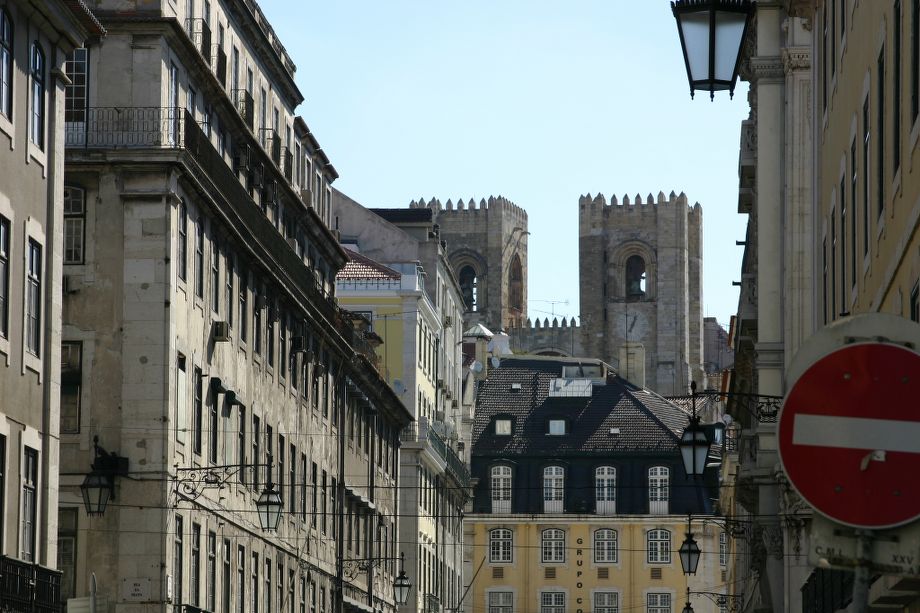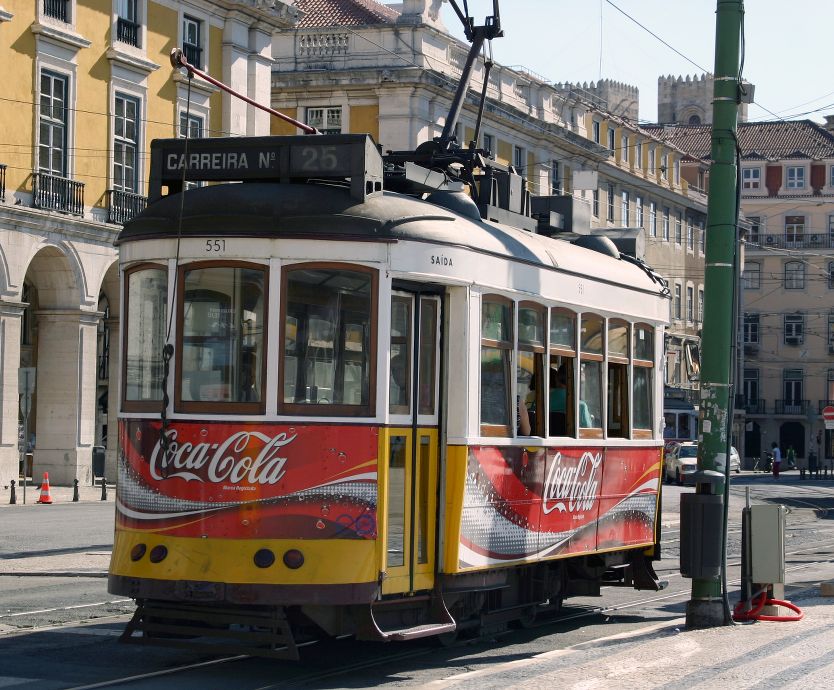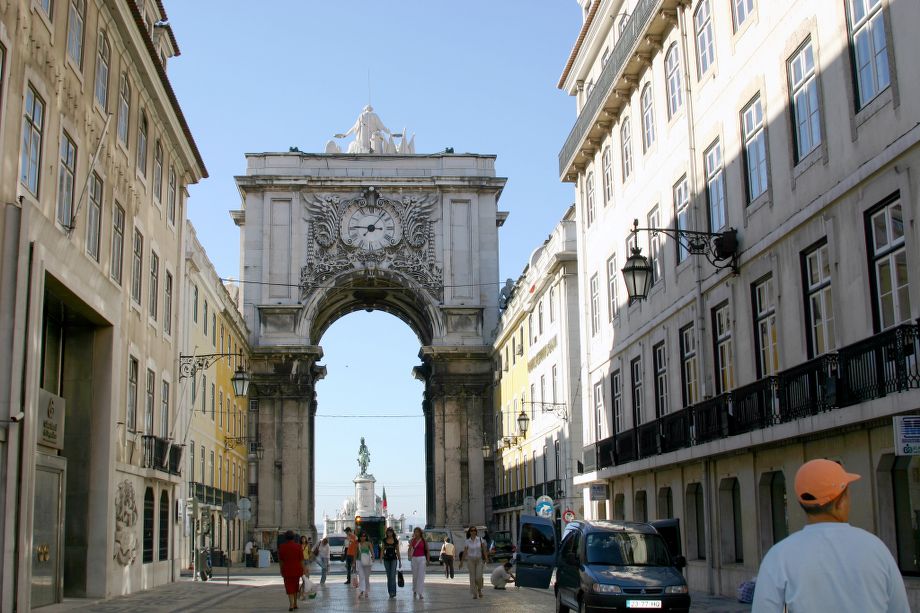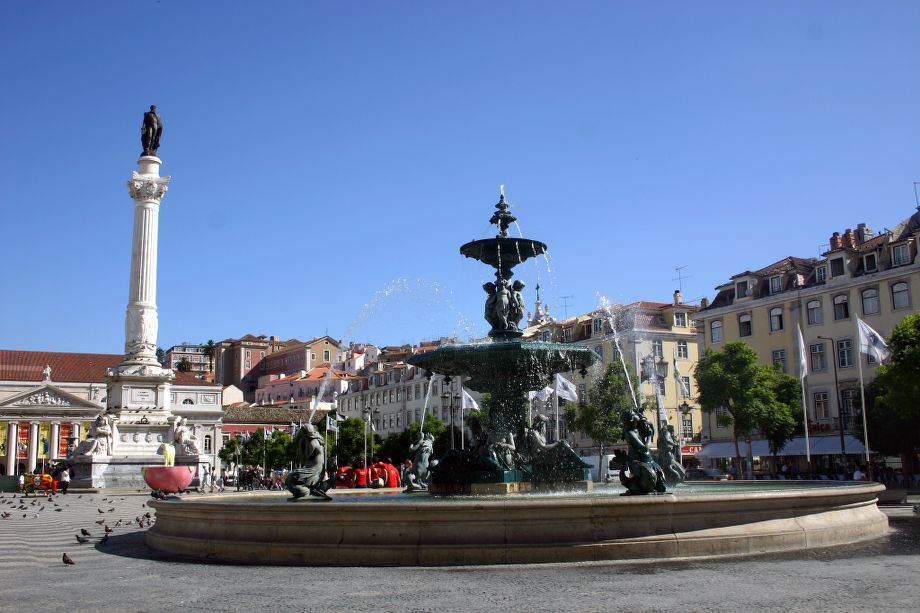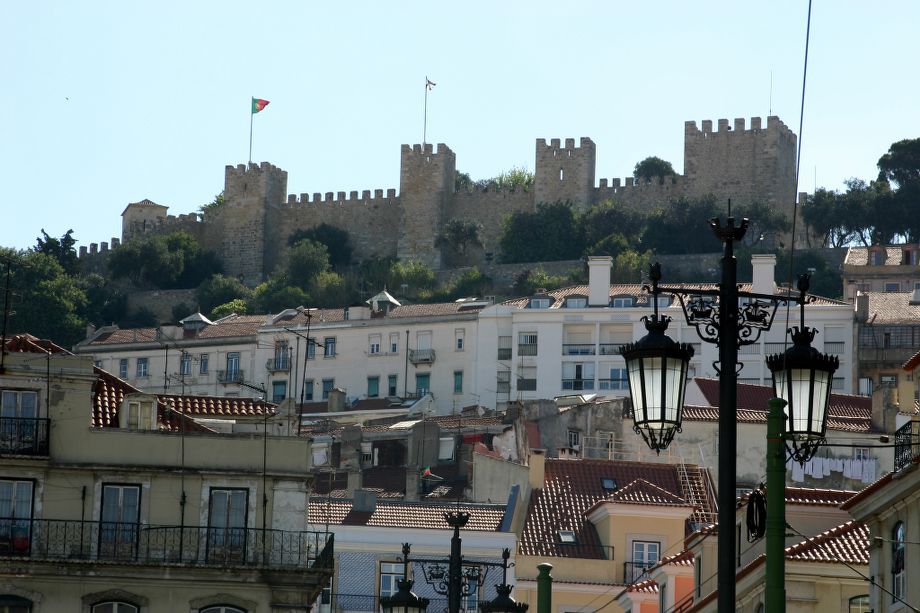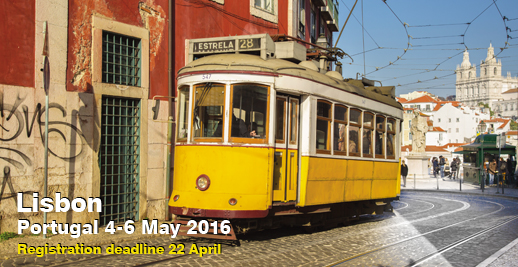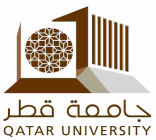Background
“Internationalization” is one of principal features of present day higher education. It is generally agreed that “internationalization” has a positive influence on learning environment of students, research outcomes as well as an overall mission of higher education institutions.
Besides the immense personal value for participating students, the presence of greater cultural diversity on campus benefits the broader student population and academics. Not to mention the economic reasons for attracting foreign students. Therefore it is not surprising to observe a significant growth of international students. According to OECD [see Education at a Glance 2014] the number of students enrolled outside their country of citizenship has risen dramatically, from 0.8 million worldwide in 1975 to 4.5 million in 2012, a more than fivefold increase. There are indications that this trend, even if at lower pace, is going to continue in the coming years.
Primary actors and beneficiaries of “internationalization” are traditionally students, researchers and universities. It is not surprising to find out that more and more universities and other academic institutions are directly involved international relations by entering into relationship with partners in other countries [dual degrees, joint study programs, collaborative research projects, creation of branch campuses, etc.]. In addition, number of countries has included “internationalization” as part of a strategy for development of higher education. In this context, governments are seeing and supporting extension of international engagement of universities and research organizations as part of public diplomacy with long-term implications for cultural and economic relations. Consequently, “internationalization” has a multitude of forms, varied outcomes and actors – from individual student and academics to universities, scientific bodies as well as governmental and international organizations.
Presented above principal aspects of “internationalization” and its growing relevance inadvertently bring about not only opportunities but also challenges with regard to decisions to be taken in selection of study programme, research team, partner institution or a country for collaboration. There is evidence that “university ranking” is seen and used as one of source of information in such context. Neither is surprising to observe that “internationalization” has found its reflection in a prevailing number of national, regional and global university rankings. Like in other areas, methodological challenges are quite significant, it is therefore appropriate, and in line with the mission of IREG Observatory, to look at the underlying concepts, actual practices as well as present and forthcoming challenges facing “internationalization” and university rankings in the context of academic relations.
The IREG-8 conference, hosted by the Universidade NOVA de Lisboa, will look closer to above set of specific issues. Similarly to previous IREG conferences, also during this event there will be an opportunity to learn about new initiatives in rankings and related to it developments in universities and other organizations.
Organizers
Organized by:
IREG Observatory on Academic Ranking and Excellence
Host University:
Universidade NOVA de Lisboa
Partners:
Portuguese Universities Rector’s Council (CRUP)
Conference of Rectors of Academic Schools in Poland (CRASP)
Program Committee
Jan Sadlak, President, IREG Observatory on Academic Ranking and Excellence, Co-Chair
António Rendas, Rector, Universidade NOVA de Lisboa, Portugal, Co-Chair
Waldemar Siwinski, Vice-President, IREG Observatory; President, Perspektywy Education Foundation, Poland, Co-Chair
Liu Nian Cai, Vice-President, IREG Observatory; Director, Center for World-Class Universities, Shanghai Jiao Tong University, China
Gero Federkeil, Vice-President, IREG Observatory; CHE Center for Higher Education, Germany
Bronislaw Misztal, Ambassador of Poland to Portugal, Professor of the University of Warsaw
Hans de Wit, Director, Boston College Center for International Higher Education, US (tbc)
Organizing Committee
Kazimierz Bilanow, Managing Director, IREG Observatory, Chair
Joana Taboas, Communications, Image and Public Relations Office, Universidade NOVA de Lisboa
Joao Melo Borges, Secretary General, CRUP
PROGRAMME
University Rankings and International Academic Relations
– a Bridging Tool or a Hindrance?
organized by: IREG Observatory on Academic Ranking and Excellence
hosted by the Universidade NOVA de Lisboa
in partnership with: CRUP (Council of Rectors of Portuguese Universities)
CRASP (Conference of Rectors of Academic Schools of Poland)
Venue: RectorateBuilding, Campus de Campolide Universidade NOVA de Lisboa
4-6 May 2016, Lisbon, Portugal
Status: updated 28 April 2016
WEDNESDAY, 4 MAY
- All day
Arrival of participants
- 15.00 – 18.00
IREG Observatory Executive Committee meeting (closed session)
Venue: Hotel “Sana Malhoa”, Ave. Jose Malhoa 8- 19.30 – 21.30
Welcome Reception
Venue: Hotel “Sana Malhoa”, Ave. Jose Malhoa 8
THURSDAY, 5 MAY
- 8:00 – 9:00
Registration and welcome coffee
- 9:00 – 9:30
Opening Session
Chair:
- Jan Sadlak, President of IREG Observatory
- António Rendas, Rector, Universidade NOVA de Lisboa
- João Queiroz, Director-General of Higher Education, Ministry of Science, Technology and Higher Education, Portugal
- António M. Cunha, President of the Portuguese Rectors Council (CRUP)
- Wiesław Banyś, President of Conference of Rectors of Academic Schools of Poland (CRASP)
- 9:30 – 10:00
Keynote speech
- Marco Antonio Zago, Rector, University of Sao Paulo, Brazil
The Quality of Higher Education: Rankings, Internationalization and Beyond
- Marco Antonio Zago, Rector, University of Sao Paulo, Brazil
- 10:00 – 11.30
Session I: The Impact of Rankings on Internationalization
Rationale of the session:Internationalization has been a major trend in higher education for the past few decades. Ever since the first release of Academic Ranking of World Universities (Shanghai Ranking) in 2003, global university rankings have transformed higher education of the world. Universities worldwide have become open to international comparison, which in turn has promoted internationalization of higher education in many ways and aspects. Speakers to be invited by the organizer or selected from submissions will be experts on the study of the impacts of rankings on the internationalization of higher education in the world.
Chair: Liu Nian Cai, Dean, Graduate School of Education Shanghai Jiao Tong University;
Vice-president of IREG Observatory, ChinaSpeakers:
- Simon Marginson, Director of the Centre for Global Higher Education, UCL Institute of London, United Kingdom: Global university ranking and performance improvement (abstract in pdf)
- Hans de Wit, Director of the Center for International Higher Education, Boston College, United States:
The Impact of Rankings on Internationalization (abstract in pdf) - Alberto Zigoni, Senior Consultant, Research Intelligence, Elsevier: International Collaboration of Research, The Netherlands
- Simon Marginson, Director of the Centre for Global Higher Education, UCL Institute of London, United Kingdom: Global university ranking and performance improvement (abstract in pdf)
- 11:30 – 12:00
Coffee break
- 12:00 – 13:30
Session II: Reflections of Internationalization in Rankings
Rationale of the session:Internationalization, along research, teaching and innovation, constitutes one of the classic groups of indicator used in most global and national rankings. It is usually measured by the percentage of students and academic staff with foreign passports, international cooperation and joint research. The kind of indicators used depend on what the concept of internationalization, the methodology of a particular ranking is based upon.
The session will review existing concepts of internationalization in the context of ranking indicators. We will analyse indicators used by main global and national rankings. We will also discuss misunderstandings and pitfalls connected with indicators of internationalization, and will try to answer, for example, if internationalization measured by the number of international students is indeed a sufficient prove of the quality of an institution? Should we view the joint research as a value in itself considering the fact that the results of the research are measured, anyway, as publications and citations? We will also discuss possible new internationalization indicators that will be free of allegation of being biased towards Anglo-Saxon universities.
To speak at the session, we will invite authors of rankings that use indicators based on internationalization, analysts and representatives of universities with internationalization high on their strategy agenda.
Chair: Waldemar Siwiński, President, Perspektywy Education Foundation, Vice-president of IREG Observatory, Poland
Speakers:
- Markus Laitinen, Vice President, European Association of International Education (EAIE); University of Helsinki, Finland: Internationalisation through the rankings looking glass
- Gero Federkeil, Coordinator, U-Multirank, Centre for Higher Education (CHE); Vice-President, IREG Observatory; Solveig Gleser, Project manager, U-Multirank, CHE, Germany: Measuring the international orientation of universities in rankings (abstract in pdf)
- Alexei Falaleev, Head, Expert Support Department, Project Office Coordinator, Russian Academic, Excellence Project 5-100, Russian Federation: Internationalization in rankings: some obvious measurement faults and ways to fix them
- 13:30 – 14:30
Lunch
- 14:30 – 14:35
Opening of poster session
- 14:35 – 14:45
Special plenary presentation: Euiho Suh, President, University Ranking Forum in Korea (URFK): New ranking initiative in the Republic of Korea (abstract in pdf)
- 14:45 – 16:15
Session III: Rankings and Internationalization in Latin America
Rationale of the session:The role of rankings in Latin America has specificities that need to be taken into account related to the fact that national policies are acting on a diversified scene, from country to country. Issues such as the governance models, the relations between public and private institutions, the involvement of transnational actors and the diversity of the students markets are examples of additional factors that contribute to the complexity of the situation. Another issue that needs to be considered, within each national context, is the potential social and political instability of some countries which may have deleterious effects on the continuity of policies.
The session will present the perspectives of senior academic managers from Latin America on the role of rankings in the region and also on the importance of benchmarking, based on rankings, for the development of their institutions in teaching, research and in the relations with the community. The role of rankings in internationalization of the institutions will also be addressed.
Chair: António Rendas, Rector, Universidade NOVA de Lisboa, Portugal
Speakers:
- Marcos Fernando Balseca, representative of the Higher Council of Universidad Andina Simón Bolívar, Ecuador: To be or not to be ranked: is that the question for Latin American universities?
- Gustavo García de Paredes, Rector of Universidad de Panamá, Panamá
- Isidro Aguillo, Head of Cybermetric Lab, Spanish National Research Council, Spain:
Open Access: Key reason for the success of Latin America universities in the Ranking Web
- 16:15 – 16:30
Coffee break
- 16:30 – 18:00
Session IV: Internationalization and Rankings: Views and Policies of Institutional Stakeholders
Rationale of the session:Importance of internationalization and rankings is reflected and confirmed, among other things, by involvement of variety of institutional stakeholders. This session will attempt to bring about experience and views upon the methodological approaches and practices for selection and implementation of activities in which, directly or indirectly, “rankings” are taken into consideration. Speakers to be invited for this session will be representatives of organizers and policy makers involved in formulation and/or implementation of activities under agenda of “internationalization”, such as; Programme Erasmus+, the German Academic Exchange Service (DAAD), l’Agence CampusFrance, the Institute of International, the ”Study in Poland” Initiative of the Perspektywy Education Foundation, and the Kazakh Bolashak Programme/the Bolashak International Scholarship.
Chair: Jan Sadlak, President of IREG Observatory
Speakers:
- Hari Purwanto, Expert Staff to Minister of Research, Technology, and Higher Education, Indonesia (abstract in pdf)
- Gani Nygymetov, President, the Bolashak International Scholarship Programme, Ministry of Education and Science, Kazakhstan
- Bianka Siwinska, Executive Director, Perspektywy Education Foundation, Poland: How rankings can stimulate the internationalization of higher education – Polish case study
- 18:00 – 19:00
Poster Session: New Voices on Internationalization and Rankings
- 19.45
Departure of busses (pick-up at Sana Malhoa Hotel)
- 20:00
Conference Gala Dinner
Venue: Espaco Lisboa – www.espacolisboa.pt- 9:00 – 11:00
Session V: New Developments in Rankings and Academic Excellence
Rationale of the session:During the last years a number of new rankings have evolved – both national and international. At the same time they introduced new methodologies, perspectives and indicators to rankings. While the major international and national rankings have already been presented at IREG conferences this session will give floor to new initiatives which have been developed in recent years. This can include new approaches to measuring research excellence which has been in the foreground of major international rankings, but also new initiatives focusing for example on teaching and learning, employability and other aspects of performance of universities.
Chair: Gero Federkeil, Manager in charge of Rankings, CHE – Centre for Higher Education, Vice-president of IREG Observatory, Germany
Speakers:
- Robert Tijssen, CWTS Centre for Science and Technology Studies, Leiden University, The Netherlands
Leiden Ranking 2016: introducing the next level (abstract in pdf) - Laurent Dupasquier, Emerging, Paris, France:
Emerging Global Employability University Survey and Ranking (abstract in pdf) - Magdalena Fonseca, Secretary General, Agency for Assessment and Accreditation of Higher Education – A3ES, Assistant Professor at the University of Porto (Portugal) and Mark Frederiks, Coordinator ECA, European Consortium for Accreditation in higher education, The Netherlands:
Assessing the Quality of Internationalisation: Experiences with the ECA Certificate (abstract in pdf) - Riri Fitri Sari, University of Indonesia:
The UI Green Metric Ranking (abstract in pdf)
- Robert Tijssen, CWTS Centre for Science and Technology Studies, Leiden University, The Netherlands
- 11:00 – 11:30
Coffee break
- 11:30 – 13:00
Panel Discussion: The Future of Internationalization and Rankings
Chair: Maria Helena Nazaré, Rector of the University of Aveiro [2002-2010], President of EUA – European University Association [2012-2015], PortugalSpeakers:
- Stanislaw Kistryn, Vice-rector, the Jagiellonian University, Poland
- Simon Marginson, Director of the Centre for Global Higher Education, Institute of Education, UCL, United Kingdom
- Ben Sowter, Head of Division, QS Intelligence Unit, United Kingdom
- Mikhail Strikhanov, Rector, National Research Nuclear University “MEPhI”, Russian Federation
- 13:00 – 14:00
Final Session
Moderator: Jan Sadlak, President of IREG Observatory
- Special Guest: Hassan Al-Derham, President, Qatar University: Invitation to IREG Forum 2017
- Final keynote: Jamil Salmi, Global Tertiary Education Expert: Internationalization and Excellence Strategies: Is it Working?
- 14:00 – 15:00
Farewell lunch
- 15:15 – 17:00
IREG Observatory General Assembly (closed session)
- Whole day:
Optional tourist program
- Whole day:
Departure of participants
FRIDAY, 6 MAY
SATURDAY, 7 MAY
Accommodation
The hotels are very close to Universidade NOVA de Lisboa. They are located near Praça de Espanha, just 15 minutes by car from Lisbon Airport. The closest subway stations are Praça de Espanha and S. Sebastião. The train and bus station of Sete-Rios is also close to the hotels. You can take the subway (Red line) directly from the airport to the S. Sebastião station.
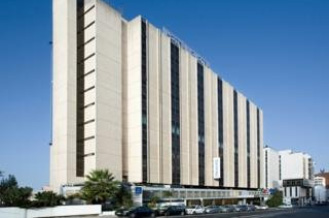
Hotel Novotel Lisboa
Address: Av. José Malhoa, 1 1A. 1099-051 Lisboa
Tel.: +351 217 244 800
E-mail: h0784-sb1@accor.com
Reservation procedure:download and fill booking form
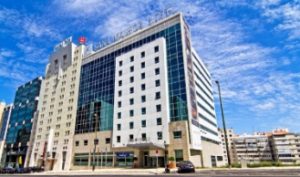
Sana Malhoa Hotel
Address: Av. José Malhoa, 8. 1099-089 Lisboa
Tel.: +351 210 061 800
E-mail: sales.malhoa@sanahotels.com
Reservation procedure: reserve in the hotel website by selecting Code “Promotion” and booking code “IREG8”
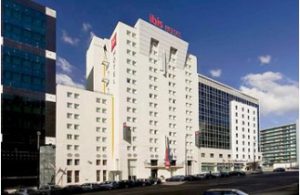
Hotel IBIS Lisboa José Malhoa
Address: Av. José Malhoa, 10. 1099-089 Lisboa
Tel.: +351 217 235 700
E-mail: H1668-AM@accor.com
Reservation procedure: book by email H1668-AM@accor.com
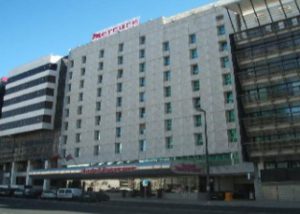
Mercure Lisboa Hotel
Address: Av. José Malhoa, 23. 1099-051 Lisboa
Tel.: +351 217 208 000
E-mail: h3346-sl@accor.com
Reservation procedure:download and fill booking form
How to arrive from the hotels to the Conference venue
UNIVERSIDADE NOVA DE LISBOA RECTORATE
Universidade NOVA de Lisboa Rectorate building is located in Campolide, one of Lisbon’s seven hills. The Rectorate building houses the administrative and social welfare services of the university. Designed by the architects Manuel Rocha Aires Mateus and Francisco Xavier Rocha Aires Mateus, the building was awarded the Portuguese Valmor Prize for Architecture in 2002.
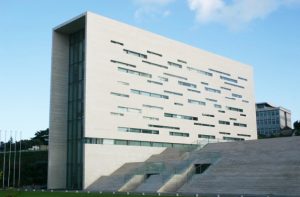 Address: Campus de Campolide.
Address: Campus de Campolide.
1099-085 Lisboa
Tel.: +351 213 715 600
E-mail: nova.comunica@unl.pt
Subway: S. Sebastião (Blue and Red lines)
Bus: 716, 718, 726, 742, 758
Directions from Hotels to Universidade NOVA de Lisboa:
Walk along Av. José Malhoa until you see Banco Popular. Turn right and take the stairs between the banks Banco Popular and Santander Totta. Turn right and follow Rua da Mesquita which leads you to Campolide Campus, where NOVA’s Rectorate building is located.

Poster Session at IREG-8 Conference
All interested are invited to send their proposal for the 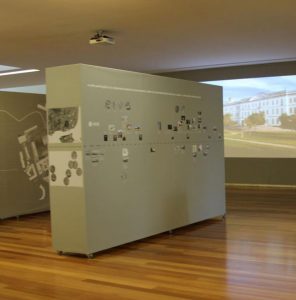 poster session to the IREG Observatory Secretariat at secretariat@ireg-observatory.org.
poster session to the IREG Observatory Secretariat at secretariat@ireg-observatory.org.
Suggested areas:
- new rankings and new ranking ideas
- research on rankings and internationalization
- university internationalization strategy in relation to rankings
- university experience in internationalization
- internationalization and excellence in teaching and research
A proposal should include a title and a brief description (maximum 100 words).
Deadline for submission: February 29, 2016.
Please see posters displays that will be used for the IREG-8 Conference ). Each display can be used on both sides in a total of 6 posters per display. Suggested dimensions for one presentation: (70×100 cm).
Inconsistent year-to-year fluctuations in THES and ARWU-Rankings 2010-2014
Author: Johannes Sorz, University of Vienna (Austria)
On the interpretation and misinterpretation of university rankings
Author: Hanne Poelmans, Sadia Vancauwenbergh, Hasselt University (Belgium)
How sustainable a university is? New indicators for university rankings
Author: Antonella Basso, Marta Cardin, Achille Giacometti, Chiara Mio, Ca’ Foscari University of Venice (Italy)
Internationalizing SHVS in Tarnów, Poland
Author: Robert Wielgat, State Higher Vocational School in Tarnów (Poland)
Towards Internalisation of the University of Gdańsk
Author: Katarzyna Świerk, University of Gdańsk (Poland)
Internationalizing Research University in Russia: the Case of Lobachevsky
Author: Nikita Avralev, Alexander Bedny, Lobachevsky State University (Russian Federation)
Metrics for the University 4.0: Entrepreneurially-minded and personality-centered
Author: Ekaterina Mikhailova, ITMO University (Russian Federation)
The way of international integration of Kazan Federal University
Author: Julia Shakirova, Kazan Federal University (Russian Federation)
World results of Round University Ranking 2016
Author: Oleg Solovyev, Round University Ranking (Russian Federation)
Web Metrics of Internationalization: How to use the web for university business intelligence
Author: Dmytro Filchenko, Sumy State University (Ukraine)
Practical information
IREG-8 Conference
“University Rankings and International Academic Relations
A Bridging Tool or a Hindrance”


SATURDAY, 7 MAY (Optional tourist programme)
Half a day visit to Lisbon – Reservations should be made directly with Agência Abreu.
Full day visit to Sintra and Cascais – Reservations should be made directly with Agência Abreu.
THE CITY OF LISBON
Lisbon is the capital city of Portugal and lies on the north bank of the Tagus estuary where it broadens to enter the Atlantic Ocean. Lisbon is Portugal’s largest city and its cultural, administrative, commercial and industrial hub. The name comes from “Olissipo”, which has its origins in the Phoenician words “Allis Ubbo”, meaning “enchanting port”. Built on seven hills overlooking the Tagus river, Lisbon is a historic capital where 800 years of cultural influences mingle with modern trends and life styles creating spectacular contrasts.
The international press highlights Lisbon as a dynamic and cosmopolitan city, with a warm climate all year round, where visitors can enjoy the colorful streets, the yellow trams that run along the cobblestone floors and explore historic monuments and museums.
Lisbon also has a vibrant night life and a rich musical culture, of which we highlight Fado, urban popular song of Portugal that was recognized by UNESCO as an Intangible Cultural Heritage of Humanity in 2011.
